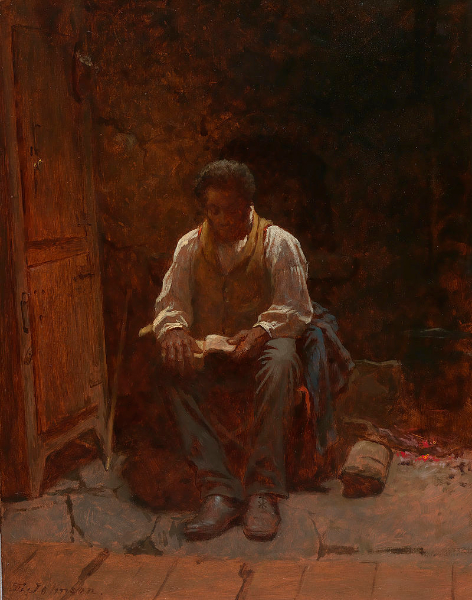As told in an earlier blog, James Dunlop of Petersburg emancipated his slave, John Brown, in April 1822 through a deed of manumission. One would imagine that Brown must revel in his freedom following a lifetime of bondage. However, his joy over being emancipated was surely tempered by the fact that his wife and children remained slaves. Worse, Virginia law required that slaves emancipated after May 1806 leave the Commonwealth within twelve months. One year after receiving his freedom, Brown would be forced to leave his family and reside in a free state where he knew no one.
Prior to emancipating Brown, Dunlop filed a petition with the General Assembly in December 1821 to permit Brown to remain in the Commonwealth following his emancipation.
Dunlop asked the General Assembly “to suffer this faithful slave to spend the remainder of his days, in the enjoyment of freedom, and in the bosom of his family.” Dunlop had nearly one hundred white citizens of Petersburg sign the petition. They acknowledged Brown as worthy of emancipation and deserving of the opportunity to remain in Virginia. The committee in the General Assembly found the petition “reasonable,” drew up and reported a bill, however, the full legislature never acted on the bill.
Brown then had to apply to the local court for permission to remain in Petersburg. Before applying, Brown had to post a notice of his intention to get the court’s permission on the courthouse door. The notice was to remain there for five weeks to allow for public response. It must have been the longest five weeks of Brown’s life. If anyone had a problem with Brown remaining in Petersburg, they could bring their issue before the court after Brown filed his application. If the court rejected Brown’s application, the decision was final with no appeal. Brown would have to leave Petersburg and his family.
The Petersburg court heard Brown’s application in May 1822. He informed the court that he was “desirous to remain and abide in the precinct of Petersburg where he had been raised and where he is known to almost every individual with his wife and family.” The court granted Brown’s request.
Not everyone who filed for petitions to remain in the Commonwealth or locality was as fortunate as John Brown. Augustus Gordon was a free person who resided in Chesterfield County. His wife Jane was also free but she was a resident of Caroline County. In July 1853, Augustus petitioned the local court in Chesterfield County to permit his wife “to be registered in this county and remain with him at his own house, where he is established [and] he hopes for life.” A month later, the court informed Augustus Gordon its decision: “The court refused to grant this petition.”
Over 200 petitions to remain in the Commonwealth or locality from 26 localities are available on Virginia Untold. These petitions record the names of over 300 African Americans. Petitions to remain filed in the General Assembly can be found in the Legislative Petitions Digital Collection and will soon be available through Virginia Untold.
The processing of local court records found in Virginia Untold was made possible through the innovative Circuit Court Records Preservation Program (CCRP), a cooperative program between the Library of Virginia and the Virginia Court Clerks Association (VCCA), which seeks to preserve the historic records found in Virginia’s circuit courts. The scanning, indexing, and transcription of the records in Virginia Untold were funded by Dominion Resources and the Library Services and Technology Act (LSTA) administered by the Institute of Museum and Library Services (IMLS).
–Greg Crawford, Local Records Program Manager





















Thank you for the images of the Dunlop petition re: John Brown and his petition to the Petersburg court. I wondered why, if he had the permission from the legislature to remain in VA why Brown had to also petition the PBG court to stay. I looked in the index to enrolled bills and did not find a law relating to Brown. I checked the printed acts of the assembly which met starting in December 1821 but did not find any law of a public or private nature published regarding him. I wonder if a bill was drawn but not passed, thus forcing Brown to petition the PBG court after Dunlop emancipated him, a process in place since 1815 or so. Any other possible explanations? Thanks again for this wonderful series you all have been producing–Mick
Mr. Nicholls,
Thanks for pointing out an unclear section of the post. We’ve edited to clarify that the petition to the Assembly was approved by committee but a bill was never acted upon by the full legislature. Accordingly, Brown had to go to the Petersburg court for a ruling.
Thanks for reading (and helping to keep us straight)!